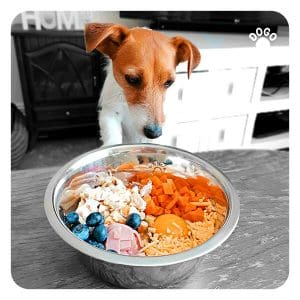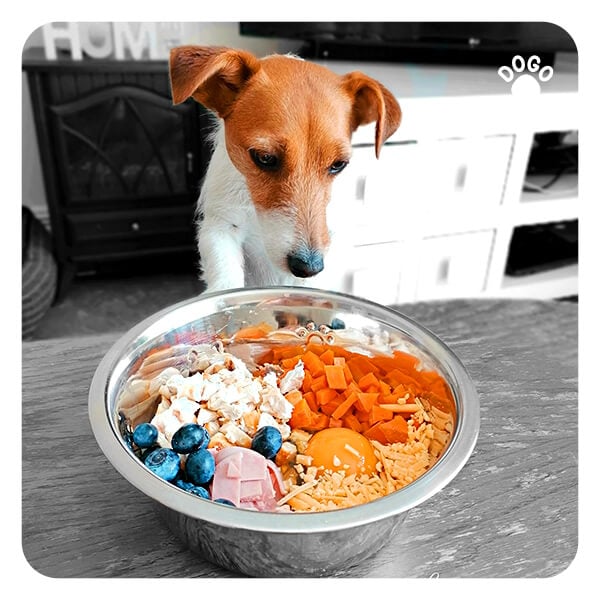 As dog owners, we often find ourselves wondering what food is safe and healthy for our furry friends. It’s essential to prioritize their well-being by providing them with a balanced diet. Although it might be tempting to share our meals with them, not all human foods are suitable for dogs. In this blog post, we’ll discuss what food dogs can eat, ensuring that their nutritional needs are met while keeping them safe and healthy.
As dog owners, we often find ourselves wondering what food is safe and healthy for our furry friends. It’s essential to prioritize their well-being by providing them with a balanced diet. Although it might be tempting to share our meals with them, not all human foods are suitable for dogs. In this blog post, we’ll discuss what food dogs can eat, ensuring that their nutritional needs are met while keeping them safe and healthy.
Understanding a Dog’s Nutritional Needs
Dogs, like humans, require a balanced diet to maintain good health. This includes a mix of proteins, carbohydrates, fats, vitamins, and minerals. Proteins, found in meat, eggs, and dairy, are essential for muscle growth and repair. Carbohydrates, such as those in grains and vegetables, provide energy. Fats, present in oils and animal-based products, aid in nutrient absorption and maintain healthy skin and coat. Vitamins and minerals obtained from fruits and vegetables are crucial for overall well-being. It’s important to keep these dietary requirements in mind when considering what food to offer your dog.
Safe and Healthy Foods for Dogs
When it comes to dog-friendly foods, there are several options that are not only safe but also beneficial for your furry companion. Lean meats like chicken and turkey, when cooked thoroughly and free from seasoning, are excellent sources of protein. Fish, such as salmon and tuna, are rich in omega-3 fatty acids, promoting healthy skin and coat. Vegetables like carrots, green beans, and sweet potatoes provide essential vitamins and fiber. Fruits like apples and blueberries can also be given in moderation, offering vitamins and antioxidants. These foods can be incorporated into your dog’s diet in appropriate portions to enhance their nutrition.
Foods to Avoid
While certain foods are safe and healthy for dogs, there are others that can be harmful and should be avoided. Onions and garlic, whether raw, cooked, or powdered, can damage a dog’s red blood cells, leading to anemia. Grapes and raisins, even in small amounts, can cause kidney failure. Chocolate, coffee, and caffeine contain substances called methylxanthines, which can be toxic to dogs and may lead to vomiting, diarrhea, and even seizures. Avocado, with its persin content, can cause stomach upset and breathing difficulties in dogs. It’s crucial to be mindful of these harmful foods and keep them out of reach of your dog.
Considerations for Feeding Your Dog
When introducing new foods to your dog’s diet, it’s important to do so gradually. Abrupt changes can lead to digestive upset. Additionally, portion control is key to maintaining your dog’s weight and overall health. Treats and table scraps should be given sparingly to prevent nutritional imbalances and excess weight gain. Always consult your veterinarian if you have any concerns about your dog’s diet or if you’re considering making significant changes to their food. Each dog is unique, and their dietary needs may vary based on factors such as age, breed, and activity level.
Our dogs are part of our families, and as responsible pet owners, it’s crucial to prioritize their nutrition and well-being. By understanding what foods are safe and healthy for dogs, we can ensure that they receive the nutrients they need to thrive. Remember that a balanced diet, along with regular exercise and veterinary care, is essential for keeping our dogs happy and healthy. By being mindful of what we feed our furry companions, we can contribute to their long and fulfilling lives.
[/fusion_text]



